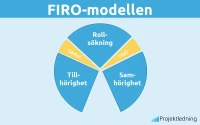The Great Decoupling: Why States Are Rewriting the Federal Tax Code
Hey everyone, Dr. Aris Thorne here, diving deep into a fascinating, almost breathtaking, development that's reshaping the very fabric of our economic future. You know, we often talk about technological breakthroughs, paradigm shifts in AI or biotech, but sometimes the most profound innovations emerge from the unexpected corners of policy and governance. And right now, we’re witnessing a seismic shift in how our states interact with federal tax law, a decoupling so significant it feels like the early days of the internet, where decentralized nodes began to assert their own unique identities.
President Trump’s "One Big Beautiful Bill Act," signed with much fanfare on July 4, 2025, promised a new era of tax simplicity, famously introducing "no federal income tax on overtime payments" and "no federal income tax on tips." On the surface, who wouldn't cheer that? Imagine, finally, a little extra breathing room for hardworking Americans. The federal "no tax on overtime" deduction, specifically, was designed to ease the burden on that premium portion of overtime pay, up to $12,500 for single filers. It sounded like a clear win, a federal mandate for a simpler, more prosperous tomorrow. What is no tax on overtime deduction and where it is not applicable? Trump overtime tax rule and state res - The Economic Times
But here’s where the story takes a truly captivating turn, a testament to the resilient, adaptive nature of our federalist system. Almost immediately, states and even Washington D.C. began to push back, not out of spite, but out of a profound understanding of their unique fiscal ecosystems. When I first saw D.C.'s rapid legislative maneuver, passing an emergency tax bill in November 2025, retroactively effective to January 1, 2025, to suspend multiple federal tax provisions locally, I honestly just sat back in my chair, speechless at the sheer audacity and efficiency of it. They didn't just balk; they acted, and they acted fast, anticipating a staggering $95 million in savings in fiscal year 2025 alone, and a whopping $567 million through fiscal year 2029. This wasn't just about rejecting a federal handout; it was about strategic local reinvestment, leveraging those savings to accelerate their local Earned Income Tax Credit and establish a brand-new $1,000 per child local child tax credit. This is local governance taking the reins, isn’t it?
The Decentralized Future of Fiscal Policy
It’s easy to look at this situation and see chaos, a "havoc on state budgets" as some experts warned, or increased complexity for taxpayers, making "DIY tax preparation less viable." And yes, for a senior who might lose out on that $6,000 federal deduction locally, the immediate impact of losing $360 to $390 on their local tax returns is real, and it hurts. But if we pull back, if we look at the bigger picture, what we're actually witnessing is a fascinating, almost organic, process of decentralization. States aren't just blindly following Uncle Sam's lead; they're drawing their own lines in the sand, carefully considering the trade-offs of conformity. This is a crucial distinction.
Think of it like this: if the federal government is a powerful, centralized supercomputer, these states are a network of highly specialized microprocessors, each optimizing for its own unique local conditions. Colorado, for instance, isn't just ignoring the "no tax on overtime" provision; they're adding a specific line to their state tax form, requiring taxpayers to "add back federally deducted overtime for state purposes." New York is doing the same for both "no tax on tips" and overtime, using new codes on their IT-225 form. Even Illinois, still assessing, is expected to update its Schedule M. Maine went further, rejecting the bonus senior deduction and deductions for car loan interest, tips, and overtime. Excited about no tax on tips? Bonus senior deduction? Not in these states - USA Today
The speed at which these states are adapting, not just rejecting but actively re-architecting their tax frameworks to support vital local initiatives like the Earned Income Tax Credit and new child tax credits, is just staggering—it means the gap between federal mandates and localized needs is closing faster than we can even comprehend, forcing a fascinating evolution in governance itself. Imagine the frantic late-night meetings in state capitals, the glow of computer screens reflecting off weary faces as lawmakers wrestled with fiscal projections, knowing every decision would ripple through millions of lives, all while balancing the immediate needs of their constituents with the long-term health of their budgets.
This isn't just about money; it’s about identity. States, grappling with depleted COVID-era federal aid and economic uncertainty, are shoring up their budgets, yes, but they're also asserting their right to define their own fiscal destinies. We’ve seen this before in history, hasn’t we? The move from a centralized, top-down approach to a more distributed, responsive model. It reminds me of the early internet, where the power of local nodes, connected yet independent, created a more robust and innovative system than any single centralized entity ever could. Are we witnessing the dawn of a new era of state fiscal sovereignty, or merely a temporary skirmish in the ongoing battle over tax policy? And what profound implications will this patchwork of tax codes have on citizen mobility and business investment in the long run? While some might view the increased complexity as a burden, I see a vibrant, if sometimes messy, dialogue emerging among policy wonks and engaged citizens on platforms like Reddit, debating the long-term benefits of fiscal autonomy versus federal uniformity. It’s a messy, human process, but it’s a living, breathing one.
The Future Is Localized
This isn't just about tax forms; it's about the future of governance. It's about states, not as passive recipients of federal policy, but as active, intelligent agents in a complex adaptive system. The "One Big Beautiful Bill Act" inadvertently ignited a firestorm of local innovation, forcing states to think creatively, strategically, and most importantly, locally. The path ahead might be a little more complicated for our tax preparers, but the underlying message is clear: the most impactful solutions often emerge from the ground up, tailored to the unique needs of communities. We're not just watching history unfold; we're witnessing the birth of a more nuanced, more resilient, and ultimately, more responsive form of shared prosperity.









